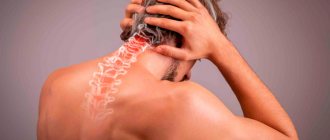Distinctive signs of dizziness
The content of the article
Dizziness can occur for various reasons. If it occurs only once, it may indicate poor health, which will pass after some time. In the case when such a symptom occurs repeatedly, a mandatory consultation with the attending physician and a more comprehensive examination is required to determine the cause of the negative symptoms.
If a patient experiences dizziness when taking a horizontal position, this may indicate pathological changes in his body, which are very important to identify in a timely manner and begin to treat correctly. In a supine position, this condition is detected by the following signs:
- a feeling of the movement of things around, a change in the spatial position of the ceiling or walls;
- very often, with regular attacks, a person experiences a persistent feeling of anxiety before going back to bed;
- a feeling of rotation of one’s own body (sometimes it haunts a person even at night), begins to feel sick when lying down;
- Vomiting and pain in the head appear.
In addition, the attack may intensify with a change in position - turning the head, a sudden change in body position. Increasing the symptom can provoke increased weakness, which haunts the person throughout the day.
Main types of illness
A healthy person may become dizzy when exposed to a strong external irritant. Malaise can occur while skating or a carousel, while the human body cannot independently control the force of rotation. Dizziness can be divided into the following forms:
- Vestibular (otherwise known as vertigo). This form of dizziness is called true, in this case a person feels the movement of all objects that are near him, in some cases you can feel the movement of your body.
- Collaptoid. Occurs when there is a sudden change in body position or pressure that is applied to the head. At this moment, a person has a desire to take a horizontal pose as soon as possible.
- Age. Occurs in older people due to imbalance. In this case the symptom is not true.
- Conditions that are often confused with dizziness (severe fatigue, stress, neurological problems, etc.). In this case, the patient begins to complain of characteristic pain in the heart and fear of dizziness.
Reasons for the occurrence of the violation
If a person suddenly begins to feel dizzy, then he needs to change his position to horizontal as soon as possible. Most often, after this, unpleasant symptoms quickly disappear, fear goes away, and consciousness becomes clear.
Severe dizziness in a lying position may indicate particularly dangerous disorders in the patient’s body. Factors in the development of this condition may be:
- Arterial hypertension. The disease is accompanied by an increase in blood pressure, especially in the morning, when a person experiences a surge in hormonal activity. Indicators exceeding 170/100 millimeters of mercury cause ischemia of the brain centers and heart.
- Osteocondritis of the spine. With this disease, the nutrition of the intervertebral discs deteriorates, which results in a change in their elasticity.
- Mier's disease occurs due to ischemia of the structure of the inner ear, vestibular, and also the auditory nerve. In this case, the patient complains of gagging, dizziness and lack of coordination in space.
- Internal otitis (labyrinthitis), ear injuries. In this case, there is a disruption in the conduction of impulses to the vestibular centers. Even when the patient is in a horizontal position, there is a feeling of pain in the ears, nausea and dizziness before the eyes.
- Brain tumors, classified as malignant and benign, provoke tissue compression. The patient experiences severe pain in the head, vomiting, and decreased visual acuity. Dizziness usually occurs at night. You feel dizzy when lying on your back, and there is a feeling of a change in body position.
- The use of sedatives and sleeping pills often negatively affects the functioning of the brain. This is especially pronounced in women, who are characterized by a surge in hormone levels. After waking up, a person has a feeling of nausea, dizziness begins and the focus of the gaze on a certain object is impaired.
- In first-degree diabetes mellitus, the patient's blood vessels supplying blood to the brain become severely swollen. A sharp increase in blood glucose can cause lethargy, nervousness, and in some cases dizziness.
- If a traumatic brain injury has recently been sustained, the patient may complain of headaches, decreased vision and temporary seizures. If the damage affects the vestibular system or leads to increased intracranial pressure, the person may experience nausea, dizziness, and vomiting, after which the condition does not improve.
Doctors recommend that if you feel dizzy in the morning, do not get out of bed abruptly. During an attack, you need to calm down. To do this, close your eyes and begin to breathe deeply, pressing your thumbs on your eyeballs for 10-15 seconds.
The head may begin to spin due to other diseases, so it is very important to consult your doctor in advance to diagnose and find out the cause of the ailment. Only through special research and testing can you determine exactly what exactly provokes dizziness in a horizontal position.
To diagnose a patient, doctors use various blood tests, vascular Dopplerography, MRI, X-rays and some other studies.
To make a correct diagnosis, a specialist must find out exactly how the attack proceeds, whether the person’s condition changes during this, and whether there are additional symptoms (weakness, painful feelings, hearing loss, tinnitus and other problems).
That is why it is very important to monitor what feelings the patient experiences when dizzy. This will help to correctly and quickly determine the cause of the disease and prescribe adequate treatment.
First aid rules during an attack
If the manifestation of an attack, when surrounding objects begin to move around, is not associated with any serious pathology, this symptom can be relieved even at home:
- Having felt the first signs, you should calm down and try to lie down on the bed with slow, smooth movements, the number of which should be minimal. Then, after a few minutes, rise carefully as well.
- To prevent relapses of this problem, rest more often, spend more time in nature, and avoid stress and overwork.
- Including iron-rich foods in your diet may help.
- No less useful is a diet based on pomegranate, carrot and beet juices, which strengthen the walls of blood vessels and increase their elasticity.
Causes of tinnitus and dizziness
Tinnitus and dizziness can last from a second to several hours.
If a person is overtaken by a deterioration in his condition at work, on the street or anywhere else, he can use a proven remedy. A quick result is achieved by special therapeutic exercises, which include the following exercises:
- you should stop looking at any thing, without looking away until the discomfort when moving completely disappears;
- squeeze the area in the middle of the forehead and massage it for 20 seconds;
- do self-massage of the face, cervical spine, head area;
- combine exercises with restoring breathing through deep inhalations and exhalations at a slow pace.
In a situation where your head begins to feel dizzy, you should immediately consult a doctor. This condition can only be treated with medication.
Providing assistance at home
If dizziness bothers you regularly, you need to contact a neurologist who will find out the cause of the problem and help eliminate it. Before visiting a doctor, you can try to get rid of dizziness during sleep using several traditional medicine methods. These include:
- light massage of the neck and scalp;
- performing regular breathing exercises for two minutes (to do this, place a hand on your stomach and begin breathing slowly through your mouth, while you need to inflate your stomach as much as possible when you inhale and draw it in when you exhale);
- pressing the center of the forehead with your fingertips for several seconds (about ten);
- ventilation of the apartment;
- getting rid of tight clothes (they should be unbuttoned or removed);
- Avoid sudden body movements, including sudden turns of the head. You need to take a vertical position carefully, without rushing.
Changing your lifestyle can significantly improve the patient’s condition and even cure dizziness. That is why experts advise normalizing your diet, following a daily routine (it is very important to distinguish between rest and sleep time), taking active walks in the fresh air for at least an hour every day, and conducting therapeutic exercises.
These measures have a therapeutic effect for any pathologies that provoke dizziness. Their regular adherence will help a person prevent the progression of the disease and reduce the symptoms of vertigo.
If, despite following all the advice of a specialist, the head continues to feel dizzy, leading to further deterioration of the patient’s condition, it is necessary to immediately call an ambulance.
Treatment of discomfort
There is no need to self-diagnose and try to determine why your head hurts and feels dizzy. Only the attending physician will be able to correctly determine the cause of the ailment and prescribe the correct treatment to the patient.
Therapy for the disease directly depends on the characteristics of its course. Dizziness cannot be treated on its own - in order to get rid of this unpleasant symptom, it is imperative to identify the main cause of its occurrence and eliminate it as soon as possible. Treatment of the disease may include both non-drug treatment methods and medications:
- Carrying out manual therapy. It is very important that such therapy is carried out only by a professional specialist, otherwise it will be difficult to avoid complications.
- Reflexology and physiotherapy. In reflexology, the doctor performs acupuncture, which is especially effective for certain types of pathologies.
- Application of the Shants splint.
- Health-improving physical education.
- Use of medications. Depending on the type of lesion, medications may be prescribed to improve brain function, strengthen the walls of blood vessels, etc.
In severe cases, the specialist prescribes therapy from several methods to the patient at once. This treatment allows you to get faster results in the fight against pathology.
The development of dizziness in a horizontal position may directly indicate the presence of a serious illness. Therefore, it is very important to consult a doctor at the initial stage of pathology and carry out a comprehensive diagnosis to find out its causes.
Self-medication in this case can lead to serious problems - the real disease will begin to progress noticeably, and the patient’s condition will only worsen.
Treatment
Therapy is selected according to the established diagnosis. If signs of a stroke are detected, help is provided immediately. The patient is placed in the intensive care unit or hospitalized in the neurovascular department.
For pathologies of the inner ear, treatment is carried out by an otolaryngologist. Anti-inflammatory drugs and antibiotic therapy are indicated.
Psychogenic dizziness should be treated by a psychotherapist. It is recommended to reduce the level of stress in life and use breathing practices to calm and relieve tension. If necessary, the patient is prescribed mild sedatives.
Read also: Why do you feel dizzy?
Dear patients! Remember that only a qualified doctor can make an accurate diagnosis, determine the causes and nature of the disease, and prescribe effective treatment. You can make an appointment with our specialists or call a doctor at home by calling 8-(4822)-33-00-33
Be healthy and happy!
Carrying out therapeutic exercises
To protect yourself from dizziness and increase the body's resistance to disease, you should perform some sets of exercises:
- Close your eyes and try to draw a circle with them. Sessions last for several minutes before going to bed and after waking up. The exercise is performed while lying on your back.
- Smooth movements of the head from side to side for several minutes help strengthen the vestibular system and prevent feelings of nausea.
- Pressing your fingers on the eyes helps eliminate vomiting and vertigo.
Dizziness while lying down can occur at different ages. Since this ailment can be provoked by various reasons, the patient needs to seek help from an experienced specialist as quickly as possible, who will carry out the necessary diagnostics and prescribe treatment.
ONLINE REGISTRATION at the DIANA clinic
You can sign up by calling the toll-free phone number 8-800-707-15-60 or filling out the contact form. In this case, we will contact you ourselves.
If you find an error, please select a piece of text and press Ctrl+Enter
Kinds
Depending on the causes of the syndrome, it is divided into several types. They can be most broadly divided into those typical for a healthy person and those associated either with a lack of any microelements that ensure normal brain activity, or with the development of another disease.
In the first case, the problem is caused by severe overloads and quickly goes away after the impact on the person stops. This can happen during and after carousel rides, dancing, or skydiving.
As a result of changes in pressure and blood flow and flow, the brain begins to process impulses more slowly. Because of this, the “picture” before the eyes begins to float, as the synchronicity of the work of the vestibular apparatus and the organs of vision is disrupted. This condition does not pose any health hazard and does not indicate any particular pathology.
Dizziness and nausea in the morning
Dizziness and nausea are natural physiological responses to mental and physical fatigue.
In the second case, dizziness is due to the fact that oxygen saturation of the brain is reduced, so it again begins to work at a slower pace. This happens for the following reasons:
- due to systematic malnutrition;
- due to insufficient rest;
- during pregnancy;
- in conditions growth ;
- due to stress, due to which the body gets tired much faster, and so on.
This condition is also usually harmless and goes away with rest and normal nutrition.
The worst thing is when loss of balance when changing body position is caused by a disease. In this case, be sure to consult a doctor in time and find out the causes of pathological disturbances in orientation in space.








